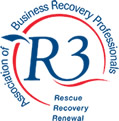Update: New Criteria for Winding Up Petitions from 1st October 2021
Sep 28, 2021

At the onset of the pandemic, the Government introduced business support measures which included putting in place certain criteria preventing creditors from issuing Winding Up Petitions against those who owed money.
Since the inception of the Corporate Insolvency and Governance Act on 25th June 2020, any creditor wanting to issue a Winding Up Petition against a company which owed an outstanding debt must have been able to demonstrate to court that they had reasonable grounds to believe that the covid-19 pandemic has not had a financial impact on the debtor company, or that the debt would have arisen regardless of the pandemic.
As the pandemic continued, the temporary business support measures were extended four times from an original end date of 30th September 2020, each extension was considered a “final” extension, now finally due to expire on 30th September 2021. The measures were brought in to prevent aggressive creditor enforcement action, provide breathing space for businesses and reduce the number of business insolvencies and job losses during the pandemic.
On 9th September 2021, the Government set out regulations to replace the current restrictions on Winding Up Petitions and Statutory Demands in order to taper the current measures and promote a gradual return to the normal insolvency and debt enforcement framework. The new criteria with effect from 1st October 2021 and which runs until 31st March 2022 is as follows: -
- The threshold debt which must be owed in order to present a Winding Up Petition against a company has been increased to £10,000 from £750
- As part of Winding Up proceedings, creditors must be able to demonstrate to court that they have sought proposals from the company owing the debt for repayment, giving at least 21 days for the company to respond before they can proceed with a Winding Up Petition
- For commercial landlords, they must continue to demonstrate to court that the debts owing and being pursued are not related to the coronavirus pandemic
This will no doubt be welcome news to many business owners, particularly in the small to medium business sector, as the protection provides further time to allow for the possibility of post pandemic recovery before creditors would be able to take firmer enforcement action. The Government anticipates that this will be particularly beneficial to hospitality and leisure sectors which were hardest hit during the pandemic.
Once a Winding Up Petition is presented, this brings significant restrictions on a company’s ability to operate (further information here) scuppering the chances of a successful business recovery.
Whether you are the creditor thinking of taking such enforcement proceedings or the debtor company which has received the threat of a Winding Up Petition (and request for settlement proposals within 21 days) – it is important to take professional advice from an Insolvency Practitioner at the early stages to understand all possible options, scenarios and outcomes.
Credit Control Essential
For businesses which regularly grant credit facilities of up to £10,000, it is important that good credit control is in place to ensure accounts are collected within terms wherever possible as the ability to issue a Winding Up Petition as a debt enforcement tool may be restricted, prior to the new measures the debt threshold for a company Winding Up Petition was £750.
Of course, for those who allow greater credit limits than £10,000 it is effectively business as usual once again should you wish to take firm statutory debt enforcement action against problematic accounts.
Here to help and advise…
There has been a lot of significant changes for businesses this September, as well as tapering off the statutory debt enforcement measures mentioned above, furlough is being brought to a close, HMRC has restarted their own debt enforcement activities (see our previous article on HMRC for more information) and businesses which secured a CBILS or Bounce Back Loan will be starting repayments, if not done so already, which must be factored into financial forecasts. The combination of these events has certainly caused an increase in demand for our services and we’re speaking to more and more business owners and directors who are concerned about both their company’s financial position as well as potential personal liability consequences.
We cannot stress enough how important it is for business owners who are beginning to experience some financial distress to seek independent professional advice from an insolvency practitioner. IPs are best placed to help and the earlier the better to having more options available to rescue the business.
Here at ICS, our licensed and regulated IPs provide initial advice completely free of charge and without obligation as well as in the strictest of confidence, always.
If you would like to speak with one of the licensed and regulated IPs at ICS, here are their direct contact details, please feel free to get in touch anytime, wherever you are in the UK: -
Tom – 07795 196619 or tom.bowes@idealcs.co.uk
Andy – 07812 338252 or andrew.rosler@idealcs.co.uk



